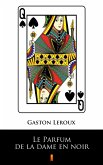Alexander Dumas invites us to be guests at this wedding, which will soon be called "bloody". Just a few days later, a tragedy will occur. Bartholomew's night will happen, in which many Huguenots, including Admiral de Coligny, are destined to die. What will happen to the young Heinrich of Navarre, will he be able to avoid the fate of his co-religionists? And Margarita, what will be her behavior in the current difficult circumstances?
Dieser Download kann aus rechtlichen Gründen nur mit Rechnungsadresse in A, B, BG, CY, CZ, D, DK, EW, E, FIN, F, GR, HR, H, IRL, I, LT, L, LR, M, NL, PL, P, R, S, SLO, SK ausgeliefert werden.









